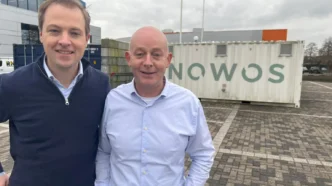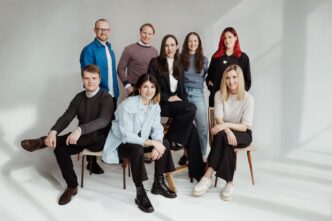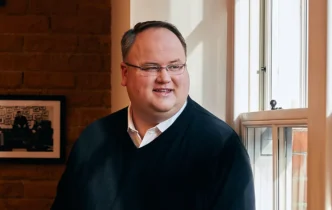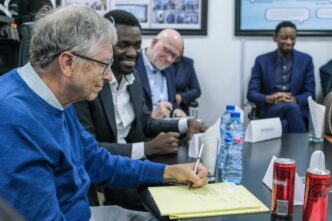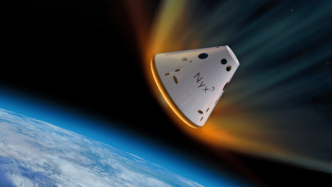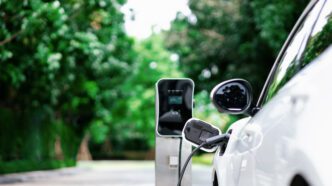As Europe pushes toward a greener future, the surge in electric vehicles and battery-powered tools is creating new environmental challenges. Especially around battery waste, scarce raw materials, and recycling inefficiencies. Stepping up to meet this moment is NOWOS, a Dutch startup leading the charge in lithium-ion battery repair and reuse across the continent.
This week, NOWOS secured €6 million in equity funding to expand its mission of building a circular economy around battery lifecycles. The round was led by Paris- and Singapore-based impact investor Shift4Good. With additional support from the Fair Capital Impact Fund and Goeie Grutten Impact Fund. The company is also in the process of raising another €3 million through debt financing.
With this fresh backing, NOWOS is setting its sights on growing its presence in Europe by launching new repair hubs in Poland by 2025 and Germany by 2026. The investment will also accelerate the development of a Battery Passport system. And help scale repair protocols across more battery models and industries. The ultimate goal: to establish a continent-wide infrastructure that prioritizes repair, tracking, and reuse over replacement.
Founded in 2019 by Ambre Eppler, Prins Doornekamp, Jan Bartels, and Steven Bradshaw. NOWOS began its journey in the Netherlands, focusing on repairing lithium-ion batteries used in micromobility vehicles like e-bikes and scooters. From the start, the company operated with a strong social and environmental ethos. Co-founder and Chief Impact Officer Alix Armour explained that the company was built as a social enterprise. Embedding sustainability into every layer of its operations—while still ensuring financial viability for stakeholders.
NOWOS’s efforts are paying off. In 2024 alone, the company repaired over 310,000 kilograms of batteries, covering 98 different models. Equivalent to about 90,000 individual battery units. Clients include major fleet operators and manufacturers such as Dott, Felyx, Qwic, Dance, and Fifteen. As well as well-known battery makers like NIU and Segway-Ninebot. These partnerships reflect a growing commitment among companies to extend battery life and minimize environmental impact.
According to Doornekamp, the funding is more than just financial—it’s a validation of the company’s vision and a tool to scale its mission across Europe. He emphasized that trust from early customers and partners has been key to navigating the rapidly evolving battery ecosystem. The support from Shift4Good, in particular, brings not just capital but deep sector expertise in sustainable transportation and circular economy models. Their investment strengthens NOWOS’s ability to innovate and lead in this space.
Shift4Good founder Yann Marteil sees the deal as a pivotal moment for circular solutions in transportation. He said the circular economy is fast becoming a standalone industry. And battery repair plays a crucial role in reducing raw material consumption and waste. What made NOWOS stand out, he added, was its localized approach. Building repair hubs tailored to the specific needs of clients and regions, while working closely with OEMs and stakeholders across the value chain.
That local model is key to NOWOS’s strategy. Instead of relying on centralized recycling, the company emphasizes early-stage maintenance and repair to extend battery life before considering reuse or recycling. This hands-on approach helps conserve resources and lowers carbon emissions from premature disposal. It also positions NOWOS uniquely in the market, with a growing database of repair protocols covering dozens of battery types.
Armour acknowledged that competition in the battery repair space is increasing but pointed out that NOWOS remains one of the few players doing high-volume. B2B-focused repair work directly with battery and vehicle manufacturers. The company’s leadership in this niche. Combined with its ability to scale and integrate with partners involved in cell repurposing and recycling, gives it a critical advantage.
The company is also investing in digital tools to support its expansion. Armour shared that new funding will help improve internal systems and automation tools, along with boosting research into better repair techniques. This includes building proprietary testing equipment and refining processes for diagnosing and restoring damaged batteries—enhancing both speed and sustainability.
For Fair Capital Impact Fund, one of the participating investors, the decision to back NOWOS came down to impact and leadership. Investment lead Marije Schasfoort said the startup’s approach aligns perfectly with their mission to support scalable, impact-driven solutions. NOWOS, she noted, is proving that repair is not just an eco-conscious ideal. But a commercially viable alternative that can reshape how batteries are used and reused.
With new hubs on the way and momentum building, NOWOS is on track to transform how Europe manages battery-powered innovation. By replacing disposal with repair and recycling with reuse, the company is setting a new standard for sustainability—one battery at a time.
